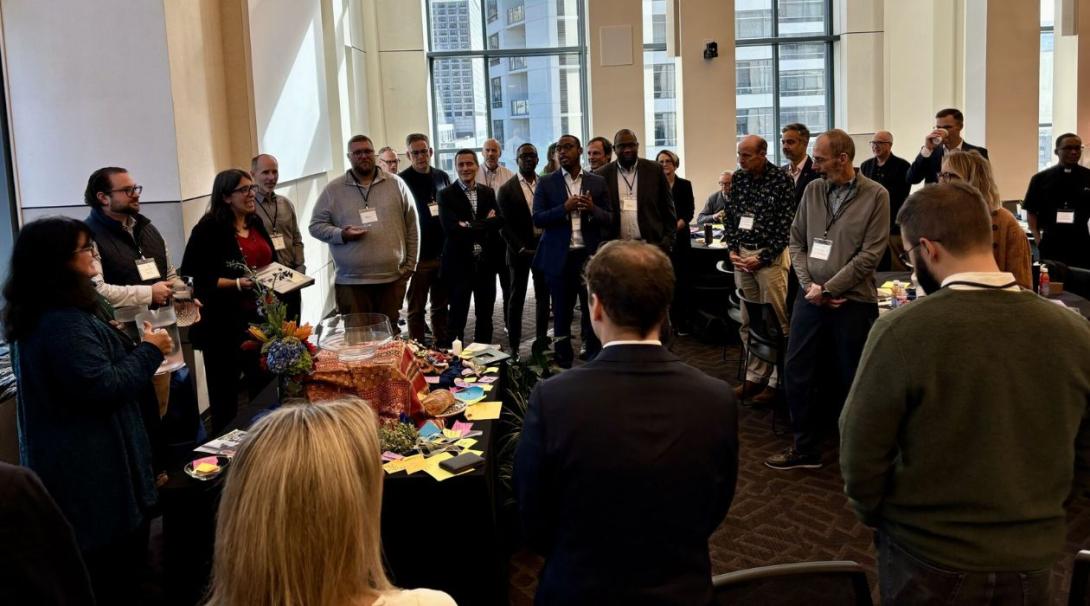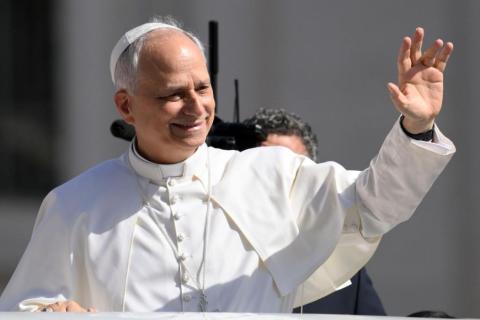
Group of people in the Francesco Collaborative’s Catholic Social Teaching and Investment Summit
I’ve shied away from business matters throughout my life. In executive roles at publishing houses, I’ve always been grateful that someone else is scrutinizing the financial books, leaving me to focus on other matters. I’ve always felt that money is good to have on hand, but not to think too much about.
So I wasn’t prepared for how godly the financial managers were, who I met at the Francesco Collaborative gathering in Chicago two weeks ago. They met in a large conference space on an upper floor at the Loyola University School of Law in downtown Chicago, overlooking Michigan Avenue’s “Miracle Mile” and the massive stone Holy Name Cathedral.
I was there more as a journalist than a participant, which means I was able to sit and listen—and correct my assumptions. I honestly didn’t know there were sincere Catholics and other Christians sincerely bringing Catholic Social Teaching (CST) to their work as fund managers, investment bankers, and risk management professionals.
They are looking to create a new paradigm that differs from the ones they learned in business school. “Impact investing” is not what they learned there, and impact investing is what they were strategizing to do. This means putting your money into companies and industries that aim to benefit society in measurable ways. Many impact investments today are made in companies who are healing the environment, while still turning a profit.
“What does it mean to build a durable fund management firm that is committed to impact investing principles?” I heard one presenter say.
Others were focused on the next generation. “What does it look like to create investment spaces for Gen Xers?” “How do we intentionally unleash the leadership qualities of younger people?” These were conversations I eavesdropped on. I would say that every person in that room was interested in how to communicate faith-first investment to make it more attraction to the next generation.
Other presentations focused on challenging corporations that externalize social costs through corporate engagement; risk “accompaniment” rather than risk “management” in order to live up to the principles of CST; and altogether how to use money to do good things in the world—not just to find a healthy return on investment.
They talked about “funding allocation”—another business school term—meaning, how will we use our money? Always, conversations were turning to where Catholics are called to invest where others can’t or maybe won’t.
I overheard a participant in one of the small groups say, “Our core values should not be aspirational—they should be practiced,” and that was the theme of everything I observed. If I have any money to invest in the future, I’m going to look for these people, their funds, and their companies.












